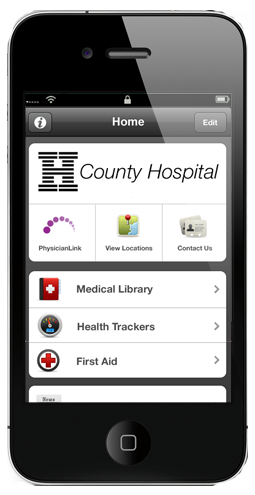Axial Makes a Deal with Mayo Clinic & Acquires mRemedy
 Axial Exchange, best-known for its strength in hospital software, has been making moves that focus on the patient side. Today Axial acquired mRemedy, a Mayo Clinic company that created an application to help patients plan for upcoming hospital events. The app, called myTality, is going to be offered along side of Axial’s existing patient and provider applications.
Axial Exchange, best-known for its strength in hospital software, has been making moves that focus on the patient side. Today Axial acquired mRemedy, a Mayo Clinic company that created an application to help patients plan for upcoming hospital events. The app, called myTality, is going to be offered along side of Axial’s existing patient and provider applications.
Axial specializes in integrating information from different systems in order to help with care transitions. CEO Joanne Rohde started Axial after working as the director of health IT strategy at open source software company Red Hat.
Axial first came out with Axial Provider to help clinicians transition patients from hospital care to at-home and follow-up care by making sure that patient information travels across disparate settings. The company debuted at the Launch! session at the Health 2.0 Fall 2010 Conference.
Late last year, Axial launched an app for patients to provide them with relevant medical information before and after hospitalization.
With that app, the company won first place in the Office of the National Coordinator for Health IT’s and Health 2.0′s Ensuring Safe Transitions challenge.
The new agreement with Mayo not only gives Axial the software and customers from myTality, but Axial has access to medical information from MayoClinic.com. That content, including information on nearly 1,000 conditions and diseases, will be integrated into Axial’s patient apps.
“One of the big keys for transitions of care ― when you leave the hospital and you go home and continue to recover, improve, get stronger ― is good information, good knowledge about what happened in the hospital, as well as making sure that your health care provider knows exactly what happened,” said Dr. Paul Takahashi. Takahashi is an associate professor of medicine at Mayo Clinic and is now a member of Axial’s advisory board.
Axial was able to complete the deal with financing from Canaan Partners, Axial’s lead venture capital investor, and Mayo Clinic.
Takahashi noted that Mayo’s making a big investment in Axial.
“I think that they’re going to transform how we can better communicate amongst different systems ― from providers, patients, hospitals — to each other,” he said.


 Idea for a guest post? Get in
Idea for a guest post? Get in